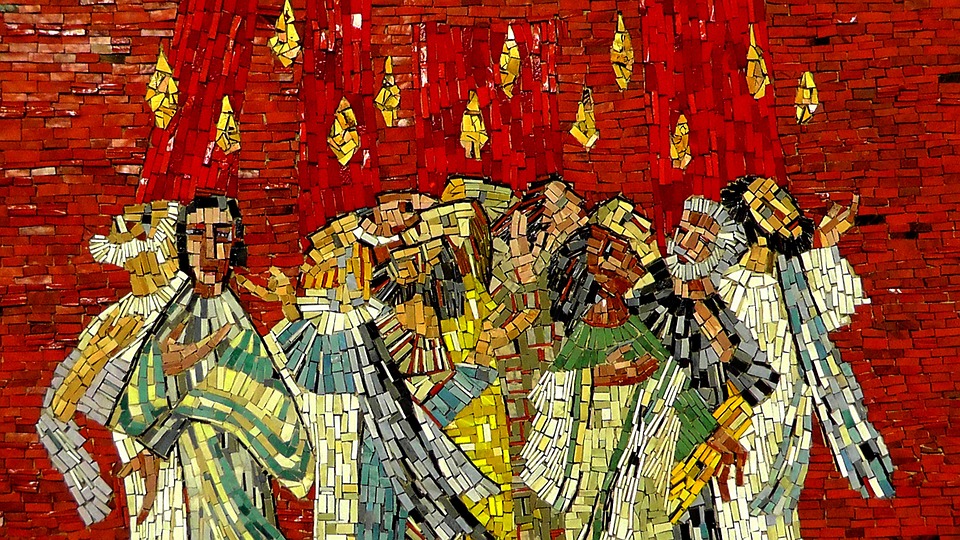


Typically when one preaches about Pentecost, the text selected is Acts 2:1-13. The Holy Spirit comes as if fire, and rests upon every one of them, the first believers in Christ are filled with it, and they begin to speak in other languages.
But there is another part to this story I would like to guide your attention to, and that is the overwhelming presence of women.
Most Bible scholars agree that Luke and Acts were Part 1 and 2 of a two-part account of the life of Jesus, written for someone, likely a Gentile (non-Jewish) person named Theophilus. You will see Theophilus’ name in the book introductions, in Luke 1:3 and Acts 1:1, described as the person these books were written for. Theophilus could have been a code word for the believers, the people who love God, or it could have been an actual person with some means who could afford to pay someone to handwrite these books for his reading pleasure.
This is important, because women are prominent in the Gospel of Luke. Luke begins with Mary and Elizabeth, pregnant with Jesus and John the Baptist respectively, then Mary offers a song of praise in Luke, the Magnificat (1:46-55); Mary and Martha, the sisters of Lazarus, have a prominent story that barely mentions Lazarus at all (when Jesus told Martha she worries too much and should begrudge her sister the opportunity to sit and Jesus’ feet and learn, which is something that DISCIPLES do), we see God imaged as a woman in Luke, in the Parable of the Lost Coin, we hear about Joanna and Susanna, women who financed Jesus’ ministry and we also hear about women who traveled with Jesus along with the male disciples (8:1-3), and of course, we hear about Mary Magdalene and the other women that were present at the cross, witnessed Jesus breathe his last, and present at the resurrection, when Jesus’ breath came back.
This makes the reading of Acts 1:1-17 all the more interesting, doesn’t it? Here we have the telling of Jesus leaving earth, and charging his disciples with waiting for the Holy Spirit to come, and that it will come upon all of them. After the roll call of the male disciples in Acts 1: 13, verse 14 says this:
“All these were constantly devoting themselves to prayer, TOGETHER WITH CERTAIN WOMEN, including Mary the mother of Jesus, as well as his brothers.”
Well lookie here. Who were all these women, presumably too many to name? If it were just Mary, Jesus’ momma, and Mary Magdalene, wouldn’t the author have named Mary Magdalene too? And if all of the male disciples are named, and the crowd number of believers is 120 people (Acts 1:15), could it be that most of the crowd were also unnamed women, making the majority of the first believers in Jesus Christ women?
I find it interesting that the contemporary Christian church still seems to model these early ratios of the first Christian church (before it even was a church), when women are the overwhelming majority presence.
“ALL OF THEM were filled with the Holy Spirit and began to speak in other languages, as the Spirit gave them ability.” (Acts 2:4, NRSV, emphasis mine.)
All of them were filled with the Holy Spirit. The Holy Spirit did not discriminate; instead, the Holy Spirit breaks apart cultural assumptions about who can get the Holy Spirit and who can preach it, as Peter himself reminds the crowd of believers of the words the prophet Joel spoke in Acts 2: 17:
“…God declares that I will pour out my Spirit upon ALL flesh, and your sons AND YOUR DAUGHTERS shall prophesy…”
As we celebrate Pentecost, and remind ourselves of the unspeakable joy that is the gift of the Holy Spirit, let’s also keep in mind the presence of women during this remembrance of the precious occasion when the Holy Spirit came upon the very first disciples of Jesus.